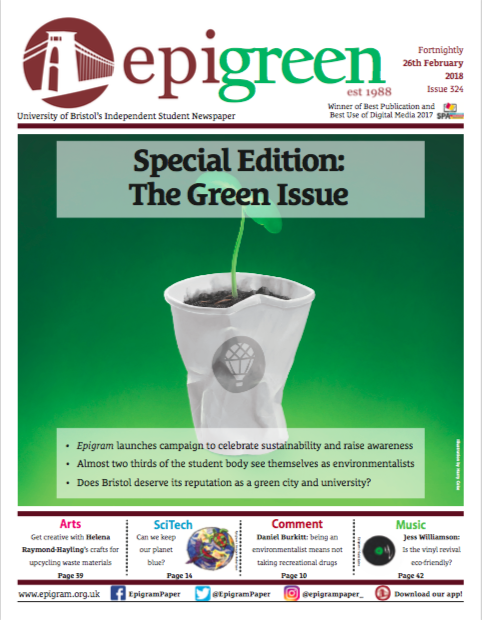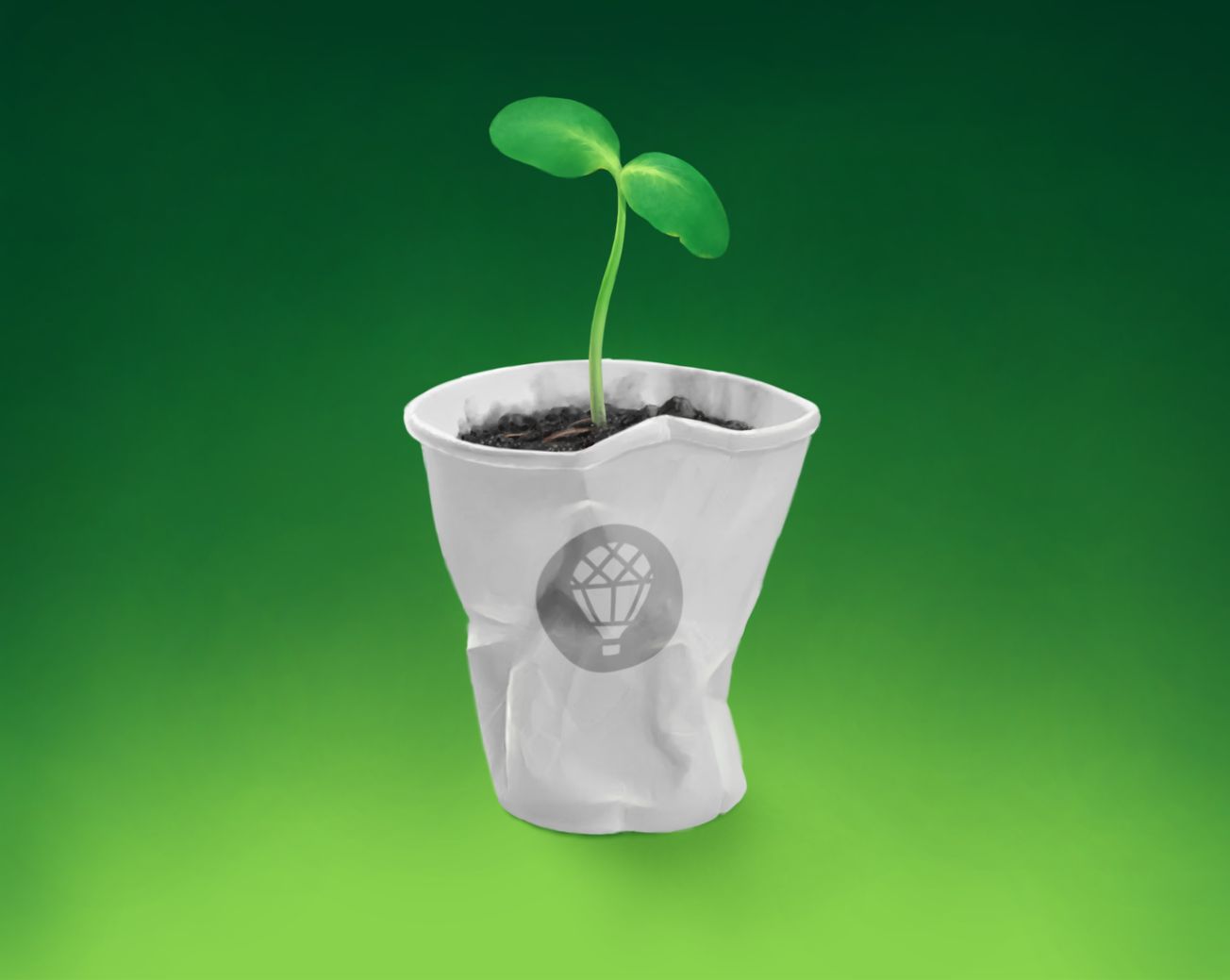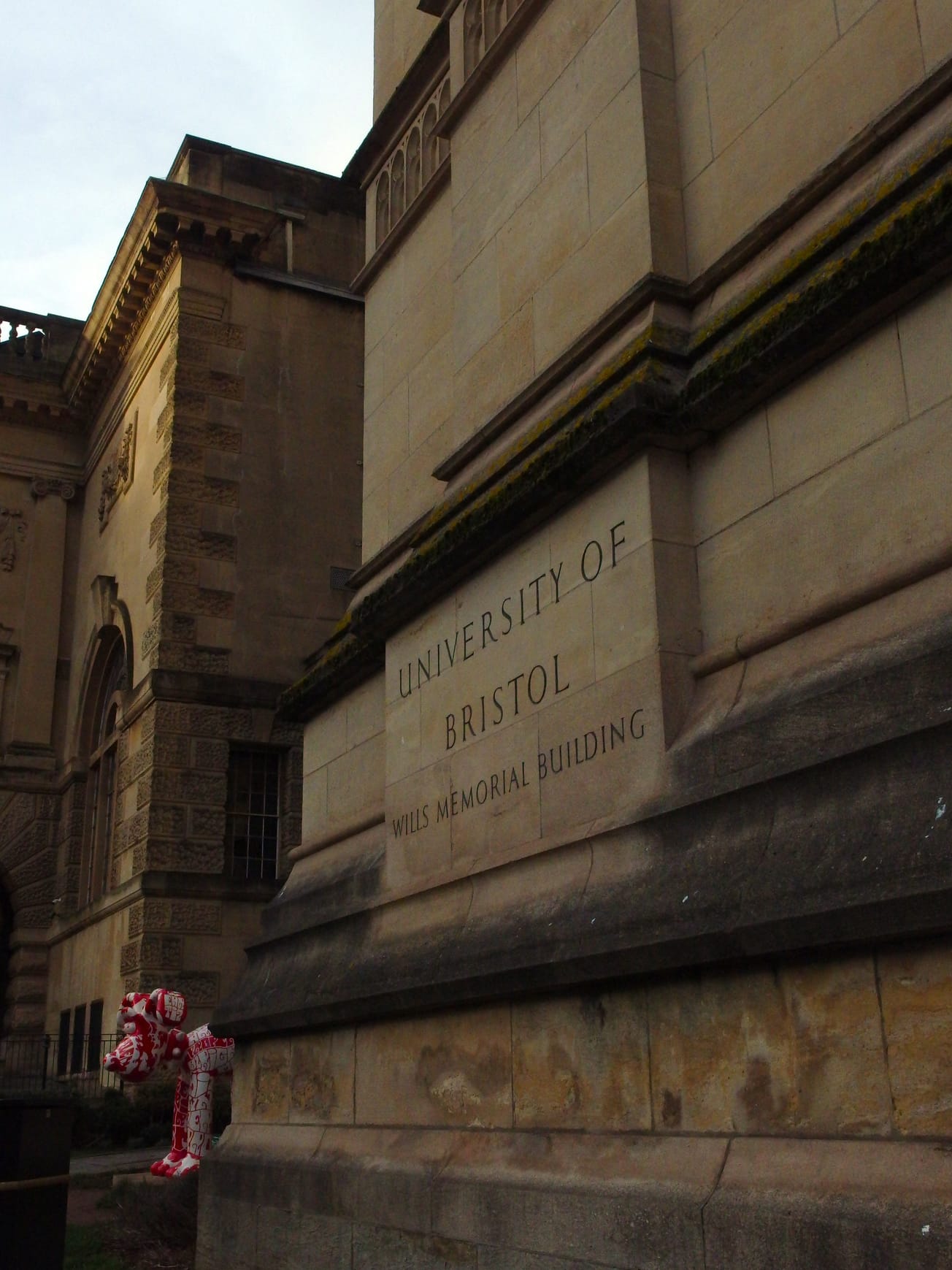Editors in Chief Alex Boulton and Noa Leach introduce Epigreen Week, a week-long environmental campaign that starts today, Monday 26th February.
The environment has been at the centre of much political and cultural thought and discussion recently, from the release of the government’s 25 year plan to the airing of David Attenborough’s latest nature series ‘Blue Planet II’ a few months ago. This subject, however, is not just a temporary concern or indeed limited to the leaders of the world, but must be an integral part of our lives.

Image: Epigram
This is a concern at the hearts of all of us here at Epigram, and for this reason we decided that over half our content should, for one special Epigreen Week, bring this international anxiety to the local setting of the University of Bristol.
Epigreen Week will see a range of conservation-oriented articles and multimedia projects broadcast across all our online channels. The newest edition of the paper, out today, kick starts our campaign week which we hope will raise awareness of these issues.
Bristol itself is renowned for being a green city and university, as many features in this issue endeavor to show. It is a centre for cross-disciplinary environmental study (look out for an article from Richard Pancost, the Director of the Cabot Institute) was named 2015’s European Green Capital; and is home to the legendary city ‘poo-bus’, as Phoebe Chase will discuss. But is the city, and its University, doing enough to protect our environment?
As figures from its most recent report show, the University has improved sustainability-wise. This has included reducing carbon emissions by 35 per cent since 2005/6 and increasing hall recycling rates by 56 per cent. Epigreen Week will include an interview with the Sustainability Department which helped us learn more about this issue around uni.
There has also been a lot of ‘green’ news recently, including the success of Fossil Free Society in campaigning for the University to divest from investing from fossil fuel giants. An interview with this society will be published by the Features section. February also saw Bristol SU’s Sustainability month, ending with a ‘Zero Waste Week’.
We're proud to have met our first #fossilfuel #divestment target https://t.co/tO6SAEdALm #fossilfree #climatechange pic.twitter.com/JbrKawZZWP
— Bristol University (@BristolUni) February 2, 2018
While the university may be improving in certain sustainability respects, claiming ‘sustainability is part of everything we do’, a survey conducted by Epigram reveals 47.2 per cent of respondents are not aware of the University’s environmental policies. The other half who were aware of relevant policies were just as likely to be dissatisfied as satisfied.
A number of articles also note the environmental hypocrisy of the student lifestyle. Dan Burkitt will argue in an upcoming Comment article that the widespread recreational drug use amongst students mismatches Bristol’s widespread environmental concern, while our survey revealed a mere 1.4 per cent of students feel like they are environmentally friendly in everything they do.
Saying this, 97.5 per cent of respondents felt that they did at least ‘one or two things that are environmentally friendly’, while 61.9 per cent said they considered themselves environmentalists.
How do we reduce our waste in labs? We've been sharing tips at the #ZeroWasteFair @Bristol_SU #GreenImpactLabs pic.twitter.com/fZwzbt1P7p
— UoB Sustainable Labs (@UoBSusLabs) February 20, 2018
Knowing that this was such an important cause to such a significant number of us, we endeavored to make the switch to recycled paper for Epigram from the beginning of this academic year. Numerous quotes later, and the fear that we might have to fork out extortionate amounts of money to print even one eco-friendly issue, we discovered that we have actually been printing on recycled paper all along!
You can join us in this campaign by putting a bit of green into your life, and, luckily for you, Epigram has already given you the means to do so. The paper shows a selection of student-led sustainability projects, alongside a selection of self-help guides for green living in different areas of life.
We recommend Helena Raymond Hayling’s creative crafts which use up your waste materials, Emily Hayman’s guide to being a Green Bean, Sarah Roller’s tips on how to avoid food waste, and Jessica Smith’s advice on maintaining a sustainable wardrobe without sacrificing style.
Perhaps something you read this week will become not just a week-long experiment but a long-term habit – you can count on the fact that the Epigram team will certainly be trying!








